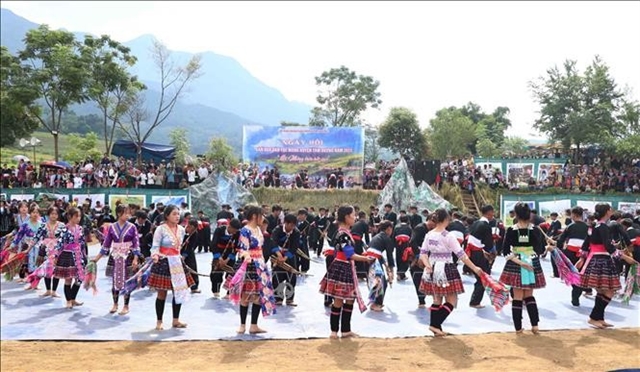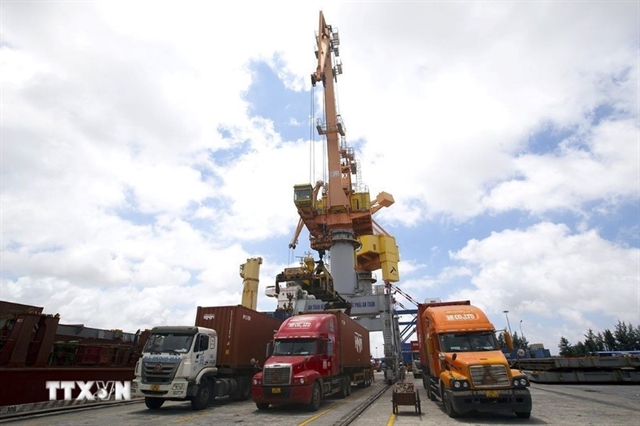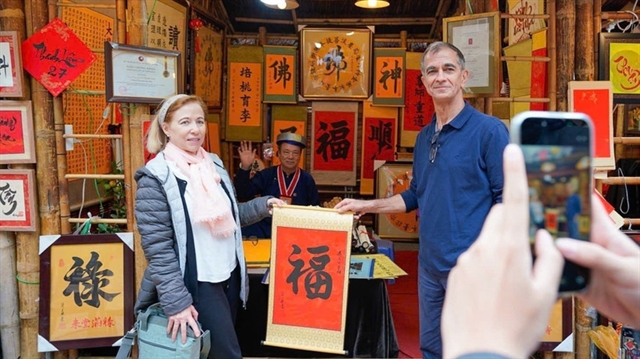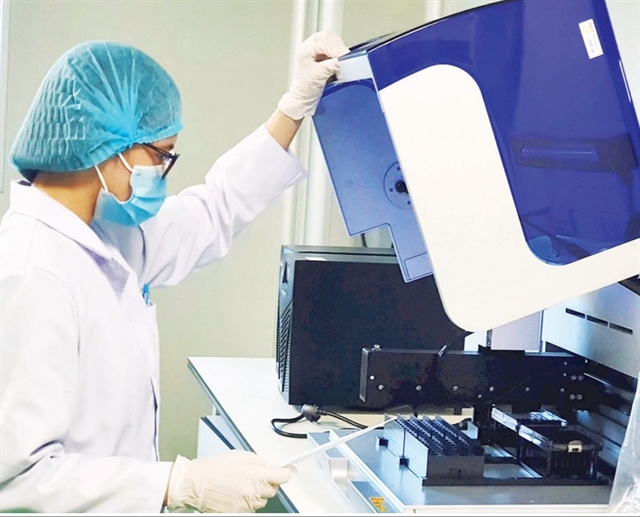 World
World
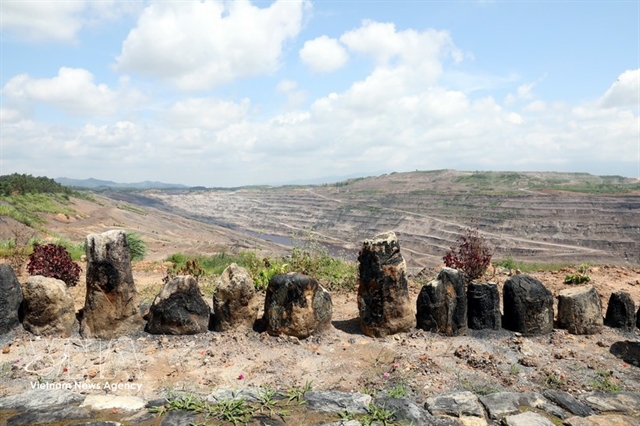
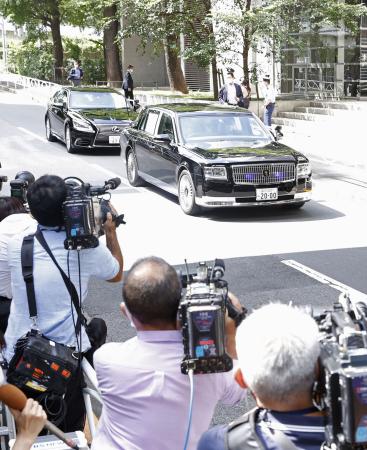
|
| A vehicle carrying Japanese Prime Minister Shinzo Abe (front) arrives on Aug. 24, 2020, at Keio University Hospital in Tokyo, where he received what an aide called "a regular health checkup" a week earlier amid speculation about his health. KYODO/VNA Photo |
TOKYO — Prime Minister Shinzo Abe returned Monday to a Tokyo hospital where a week ago he underwent what an aide called "a regular health checkup," the visit coming on the same day he marks a record as Japan's longest-serving prime minister in terms of consecutive days in office.
Abe is expected to receive the results of his checkup at Keio University Hospital as he was advised by doctors during his previous visit to come back in a week, his office and a senior official of the ruling Liberal Democratic Party said.
However, the Japanese leader's second hospital visit in a week did little to stem speculation about his possibly failing health.
The trip came on the day Abe marked 2,799 uninterrupted days as premier, breaking the previous record held by his great uncle Eisaku Sato.
Speculation about the 65-year-old's health has been swirling since he spent more than seven hours at the hospital on August 17. Questions began being asked about his health after a magazine reported he had vomited blood in July.
Abe, whose first stint as prime minister from 2006 to 2007 was abruptly ended by an intestinal disease called ulcerative colitis, has seemingly remained healthy since returning to power in 2012 with the help of a new drug, although his administration has had its share of maladies thanks to a series of cronyism scandals that have rocked it in recent years.
Under his economic policies dubbed "Abenomics," Japan has set a higher inflation target and undertaken unlimited monetary easing as well as spending big on public works. The country's Nikkei Stock Average has risen to above 20,000 points from below 10,000, where it was when the LDP, led by Abe, returned to power in December 2012, and job availability has improved.
The economic recovery and a fragmented political opposition have helped Abe weather favoritism scandals over the government's heavily discounted sale of state land to Moritomo Gakuen, a school operator linked to Abe's wife, and the decision to approve construction of a new faculty of the Kake Educational Institution run by his friend.
But the positive impacts of his economic policies have been largely lost during the novel coronavirus pandemic, and his support rate, which stood at 62 per cent at the start of his second stint, has hovered below 40 per cent lately as criticism has grown over his response to the COVID-19 crisis.
The 46.6 billion yen ($440 million) government program to distribute cloth face masks – which quickly earned the name "Abenomask," a pun on "Abenomics" and meaning "Abe's mask" in Japanese – has proved highly unpopular with the public for the masks' poor quality and slow delivery.
With the recent resurgence in virus infections in Tokyo, questions remain as to whether Japan can still host the Tokyo Olympic and Paralympic Games, initially scheduled for this summer but postponed a year, during Abe's tenure as head of the LDP and prime minister through September 2021.
On the defense and diplomacy front, strengthening the alliance with the United States has been another defining feature of his second term.
His Cabinet approved a reinterpretation of the country's pacifist Constitution in 2014 so the Self-Defense Forces can defend allies under armed attack in collective self-defense, marking a major departure from Japan's postwar security policy.
But Abe has yet to achieve the return of Japanese nationals abducted to North Korea in the 1970s and 1980s, an issue high on his agenda.
Nor has he been able to make substantial progress in talks with Russia to realize the return of islands lost when Japan was defeated in World War II, known as the Northern Territories in Japan and Southern Kurils in Russia, an issue that has prevented the two countries from signing a postwar peace treaty. — KYODO

